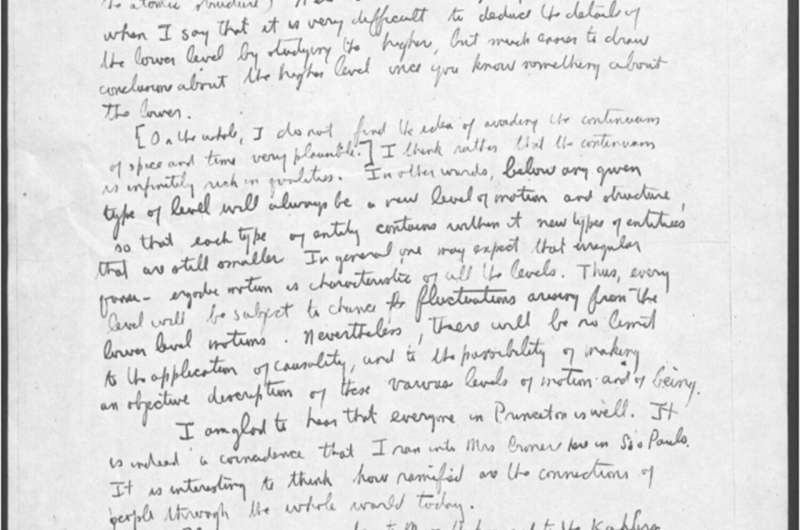This article has been reviewed according to Science X's editorial process and policies. Editors have highlighted the following attributes while ensuring the content's credibility:
fact-checked
trusted source
proofread
Acquitting a physicist accused of 'obscurantism'

American-born British theoretical physicist David Bohm made many significant contributions to physics. But he's most famous for challenging convention and interpreting quantum mechanics in terms of nonlocal or hidden variables. Several eminent contemporaries accused him of defending outdated ideals based in deterministic physics, rather than embracing his contemporaries' non-deterministic views.
In a study published in The European Physical Journal H, Andrea Oldofredi, of the University of Lisbon, Portugal, revisits Bohm's private correspondences and academic works to reconstruct the evolution of his philosophical trajectory. The analysis indicates that bias against Bohm was mostly not based on scientific grounds, and instead underlines the originality of his ontological reflections.
Bohm presented his famous pilot wave theory in 1952. In addition to a wave function, that he considered a new kind of physical field, each particle has a definite location, with position changes governed by the quantum potential. These changes occur in a way that depends on what all other particles are doing. Wolfgang Pauli called it a cheap solution; and Leon Rosenfeld called it a positively harmful "new obscurantism."
From texts of correspondences between these two physicists along with Bohm's published works, Oldofredi points out that Bohm was clear about wanting to avoid the philosophies attached to classical physics in the first place: the very ones he was accused of embracing. Indeed, his contemporaries had available the necessary material not to consider him a reactionary scientist. Rather, many had not fully read or understood his theory and agreed to ignore him on political grounds. Rosenfeld even actively discouraged dissemination and publication of his work.
Oldofredi concludes that rather than being dogmatic, Bohm's perspective can be characterized as a form of internal realism, where physical theories and their laws are not universally valid but describe correctly only limited portions of reality, which is infinitely rich and complex. His work should be embraced in discussions about scientific realism and pluralism.
More information: Andrea Oldofredi, Orthodox or dissident? The evolution of Bohm's ontological reflections in the 1950s, The European Physical Journal H (2023). DOI: 10.1140/epjh/s13129-023-00062-3
Provided by Springer


















